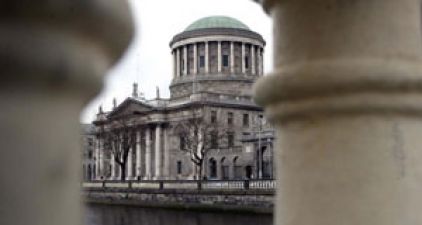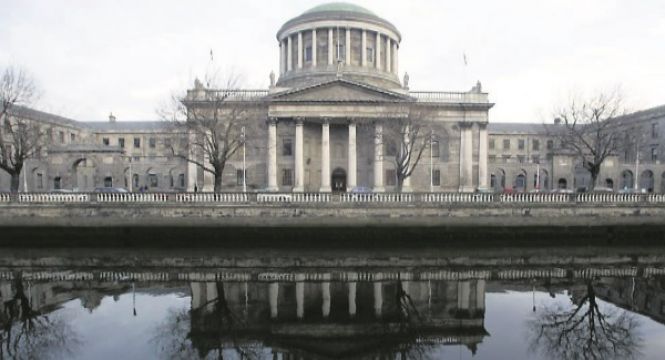An appeal by the parents of a boy with permanent devastating brain injuries aimed at ensuring they, rather than his treating hospital, have control over his medical treatment has been dismissed by the Supreme Court.
The court’s orders, subject to review in three months, include ones permitting the hospital withhold mechanical ventilation from the boy, a ward of court referred to as John, in certain circumstances.
While affirming High Court findings of a failure of parental duty warranting court intervention, the court said it will vary the High Court orders concerning John’s treatment to maximise his parents’ involvement in the treatment and to ensure certain measures will only happen if certain situations arise.
If John, as his mother hopes, “defies medical opinion”, the necessity to act upon the reliefs granted will not arise, it said.
Difficult, troubling and complex issues
The case raised “difficult, troubling and complex” issues about when the State may intervene, including by taking a child into High Court wardship, to permit medical decisions to be taken about children contrary to their parents wishes. However, the case did not involve any move to accelerate death or raise issues about euthanasia, it stressed.
The Attorney General and Irish Human Rights and Equality Commission were involved in the appeal and the Commission said the court’s judgment was “very significant” in respect of the rights of parents and their children under the Constitution.
The hospital went to court after it could not resolve differences with John’s parents – who are separated - about how he should be treated if his condition worsens, which the hospital consider is inevitable.
Recovery
He has been in hospital since he suffered catastrophic injuries in a road accident last summer, doctors consider he will make no meaningful recovery and their concerns included he was suffering pain from episodes of dystonia, a condition causing muscles to involuntarily contract. His dystonia is currently under control from medication, but is expected to recur.
The parents’ concerns include dystonia medications can compromise his respiratory function and the hospital wished to withhold invasive interventions such as CPR should his condition substantially deteriorate and administer a palliative care regime. They insisted it is too soon after the accident to determine his prognosis, and he should receive any treatment that will keep him alive.
Last November, High Court president Ms Justice Mary Irvine found there had been a failure of duty by the parents and their love for John has blinded them to the reality of his condition.
The orders, including taking John into wardship, were in his best interests and necessary to vindicate his rights, she held.
Dilemma
In a 107-page majority judgment on Friday, four of the five Supreme Court judges said the dilemma in this very sad case is the concern of doctors not to prolong John’s pain and suffering and the parents concern their “much loved” son should be allowed the chance to recover to the fullest extent possible by whatever means available. These positions as of now are in a “precarious, uneasy balance” but may be “irreconcilable” if any further dystonic episode or infection occurs.
The judgment set out important principles of general applicability to cases involving the withholding of medical treatment from a child contrary to the wishes of a family.
In the absence of a specific statutory procedure to resolve disputes about a child’s future treatment, the wardship jurisdiction may be used to determine if the court, in performance of the State’s duty under Article 42A of the Constitution – the child rights amendment- should supply the place of the parents and provide consent to treatment.
A child should not be admitted to wardship without a full hearing and argument and wardship orders in such cases should be limited to aspects of medical treatment, which it is believed parents won’t approve.
Legal test
The legal test was to consider what a loving and considerate parent would do once apprised of all the relevant information. That parent would take into account the views of the child, if expressed, and the child’s character, and decide the best interests of the child in that context.
It disagreed with the High Court having itself sought to imagine what John might want if capable of understanding his condition. While assessment of the benefits and burdens of treatment are relevant, that does not involve the court making judgments about the quality of life being lived by the patient, it added.
When it is sought to override a decision of parents, the court must be satisfied by clear and convincing evidence the parents’ decision prejudices the health and welfare of the child to such an extent there is a failure of parental duty. The court was so satisfied in this case, it said.
Having applied the principles to John’s case, the court declared the hospital would not be acting unlawfully if it considered it was in John’s best interests to withhold life-prolonging treatments, including mechanical ventilation, in certain circumstances.
Treatments
Stressing it is appropriate to maintain “the possibility and primacy of parental decision-making in this case”, it said its declarations and permission for treatments would only become effective if, in each instance, the parents’ consent was sought and refused.

Its orders and declarations are time limited, to be reviewed in three months time, and the sides can apply to the High Court if unforeseen circumstance arise in the interim.
The court stressed it was making no “general” order permitting the hospital to treat John as it considers clinically appropriate and the limited consents and declarations were “permissive and not mandatory”.
The majority judgment was give by Mr Justice Donal O’Donnell, Ms Justice Elizabeth Dunne, Ms Justice Iseult O’Malley and Ms Justice Marie Baker. In a separate concurring judgment, Ms Justice Baker addressed issues concerning the wardship jurisdiction.
In a dissenting judgment, Mr Justice William McKechnie said the “extensive” wardship order should be set aside because it failed to meet proportionality requirements of Article 42.1 and should be substituted with one admitting John to wardship and limiting the court’s power to the area of medical treatment consequent upon his accident. Subject to those findings, he agreed with his colleagues proposed order.







